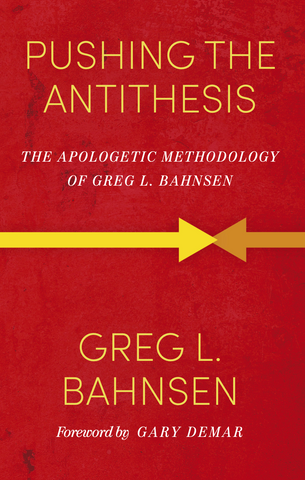After doing a little shopping, my wife and I stopped to take in a late lunch. With the bill, we each received a fortune cookie. My “fortune” read, “When in doubt, follow you heart.” I read it out loud to my wife and quickly added “Adolf Hitler.” She had a good laugh since I’m always pointing out apologetic verities that Christians can use in debates. It was sadly funny.
Given the operating assumptions of a consistent atheistic worldview, “follow your heart” can’t be questioned. Any questioning leads to the inevitable “Who are you to say?”
The atheist Arthur Leff [1] did a masterful job in pointing out the atheist’s moral problem but offered no solution: “All I can say is this. It looks as if we are all we have. Given what we know about ourselves and each other, this is an extraordinarily unappetizing prospect; looking around the world, it appears that if all men are brothers, the ruling model is Cain and Abel. Neither reason nor love, nor even terror, seems to have worked to make us ‘good,’ and worse than that, there is no reason why anything should…. As things now stand, everything is up for grabs” (1249).
“Nevertheless,” as Leff continued, he could not distance himself from a series of moral absolutes that he cannot account for in a matter-only world:
Napalming babies is bad.
Starving the poor is wicked.
Buying and sell each other is depraved.
Those who stood up to and died resisting Hitler, Stalin, [Idi] Amin, and Pol Pot—and General Custer too—have earned salvation.
Those who acquiesced deserve to be damned. There is in the world such a thing as evil.
[All together now.] Sez who?
God help us.
The best way to counter the arguments of atheists is to allow them to talk. Given enough ideological rope, they will hang themselves. It’s important that you do not allow them to borrow logical reasoning of any kind or moral capital from the theistic worldview. Atheists are rarely consistent with their operating assumptions. Some are, and we get atrocities of the gulag, China’s Great Leap Forward, and the Columbine killers. Fortunately, most atheists are not consistent. That’s why Richard Dawkins describes himself as a “cultural Christian.” His own rhetoric does not allow him to make absolutist moral arguments given that he believes the following:
In the universe of blind physical forces and genetic replication, some people are going to get hurt, and other people are going to get lucky; and you won’t find any rhyme or reason to it, nor any justice. The universe we observe has precisely the properties we should expect if there is at the bottom, no design, no purpose, no evil and no good. Nothing but blind pitiless indifference. DNA neither knows nor cares. DNA just is, and we dance to its music.[2]
Atheism is self-refuting when it comes to logic and morality. Greg Bahnsen demonstrated the logic problem in his debate with Gordon Stein in “The Great Debate” held in 1985 at the University of California (Irvine):
Dr. Bahnsen: “Are all factual questions answered in the same way?”
Dr. Stein: “No, they are not. They’re answered by the use of certain methods, though, that are the same—reason, logic, presenting evidence, and facts.”
Dr. Bahnsen: “All right. I heard you mention logical binds and logical self-contradictions in your speech. You did say that?”
Dr. Stein: “I used that phrase, yes.”
Dr. Bahnsen: “Do you believe there are laws of logic, then?”
Dr. Stein: “Absolutely.”
Dr. Bahnsen: “Are they universal?”
Dr. Stein: “They’re agreed upon by human beings. They aren’t laws that exist out in nature. They’re consensual.”
Dr. Bahnsen: “Are they simply conventions, then?”
Dr. Stein: “They are conventions, but they are conventions that are self-verifying.”
Dr. Bahnsen: “Are they sociological laws or laws of thought?”
Dr. Stein: “They are laws of thought which are interpreted by men and promulgated by men.”
Dr. Bahnsen: “Are they material in nature?”
Dr. Stein: “How can a law be material in nature?”
Dr. Bahnsen: “That’s a question I am going to ask you.”
Dr. Stein: “I would say no.”
Moderator: “Dr. Stein, you now have an opportunity to cross-examine Dr. Bahnsen.”
Dr. Stein: “Dr. Bahnsen, would you call God material or immaterial?”
Dr. Bahnsen: “Immaterial.”
Dr. Stein: “What is something that is immaterial?”
Dr. Bahnsen: “Something not extended in space.”
Dr. Stein: “Can you give me an example of anything other than God that is immaterial?”
Dr. Bahnsen: “The laws of logic.”
Moderator: “I am going to have to ask the audience to hold it down please. Please. Refrain from laughter and applause. Can you hold that down please?”

Pushing the Antithesis
Pushing the Antithesis consists of twelve chapters that include study questions, an answer key, a glossary of terms, and a comprehensive bibliography. If you want to be equipped to present the truth of the gospel in a compelling way, then Pushing the Antithesis is required reading.
Buy NowYou will hear atheists say that they don’t need God to be moral or have purpose. The following is from famed atheist Bertrand Russell.
That Man is the product of causes which had no prevision of the end they were achieving; that his origin, his growth, his hopes and fears, his loves and his beliefs, are but the outcome of accidental collocations of atoms; that no fire, no heroism, no intensity of thought and feeling, can preserve an individual life beyond the grave; that all the labours of the ages, all the devotion, all the inspiration, all the noonday brightness of human genius, are destined to extinction in the vast death of the solar system, and that the whole temple of Man’s achievement must inevitably be buried beneath the débris of a universe in ruins—all these things, if not quite beyond dispute, are yet so nearly certain, that no philosophy which rejects them can hope to stand. Only within the scaffolding of these truths, only on the firm foundation of unyielding despair, can the soul’s habitation henceforth be safely built.[3]

Why It Might be OK to Eat Your Neighbor
The most damning assessment of a matter-only cosmos devoid of a Creator is that we got to this place in our evolutionary history by acts of violence whereby the strong conquered the weak with no one to support or condemn them. Why It Might Be OK to Eat Your Neighbor repeatedly raises the issue of accounting for the conscience, good and evil, and loving our neighbor. It’s shocking to read what atheists say about a cosmos devoid of meaning and morality.
Buy NowRussell was a worldview thief. He used all the nomenclature of the Bible but made evolved bags of meat and bones the god of it all: “worship only the God created by our own love of the good,” Russell wrote, “to respect only the heaven which inspires the insight of our best moments.” Greg Bahnsen pointed out the following in his debate with George Smith sometime in 1991 on the Los Angeles radio station KKLA:
And that’s where we get back to the whole question of the atheist worldview and the Christian worldview. In terms of the atheist worldview, I would challenge George that he cannot give an account of the reasoning that he’s doing. An example that a seminary professor once used stuck with me for many years. Dr. [Cornelius] Van Til once said, “There’s no question that atheists count. Sometimes they count better than Christians. They can do their math very well. They do count, but they cannot account for their counting!” That is, in terms of their outlook on the world, what they profess to be true about knowledge and about reality—you know, the universals and absolutes of mathematics—would not make any sense whatsoever. And so, I do agree that George does reason, but I would suggest that he cannot, in terms of his worldview, make sense of the reasoning that he engages in.
In the end, “When in doubt follow your heart” can lead to some very dark places. The Bible has something directly to say about it:
The heart is more deceitful than all else
And is desperately sick;
Who can know it? (Jer. 17:9)
[1] Arthur Leff, “Unspeakable Ethics, Unnatural Law,” Duke Law Journal (1979), 1229-1249.
[2] Richard Dawkins, River Out of Eden: A Darwinian View of Life (New York: HarperCollins/BasicBooks, 1995), 133.
[3] Bertrand Russell, Mysticism and Logic including A Free Man’s Worship. From the Introduction.

